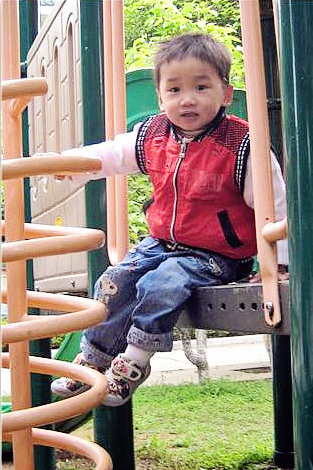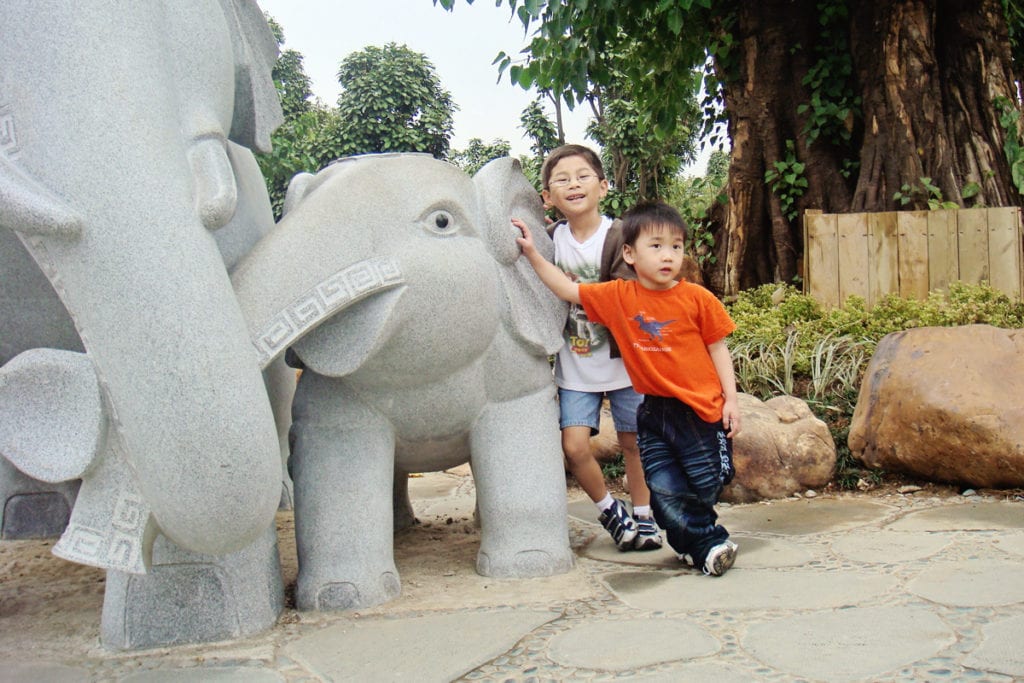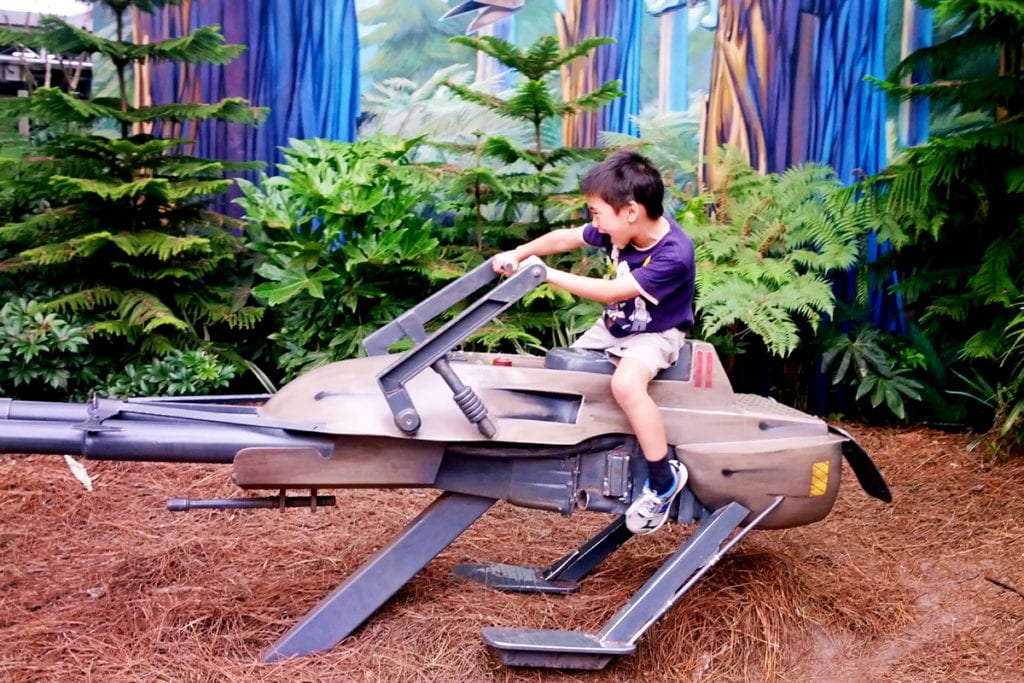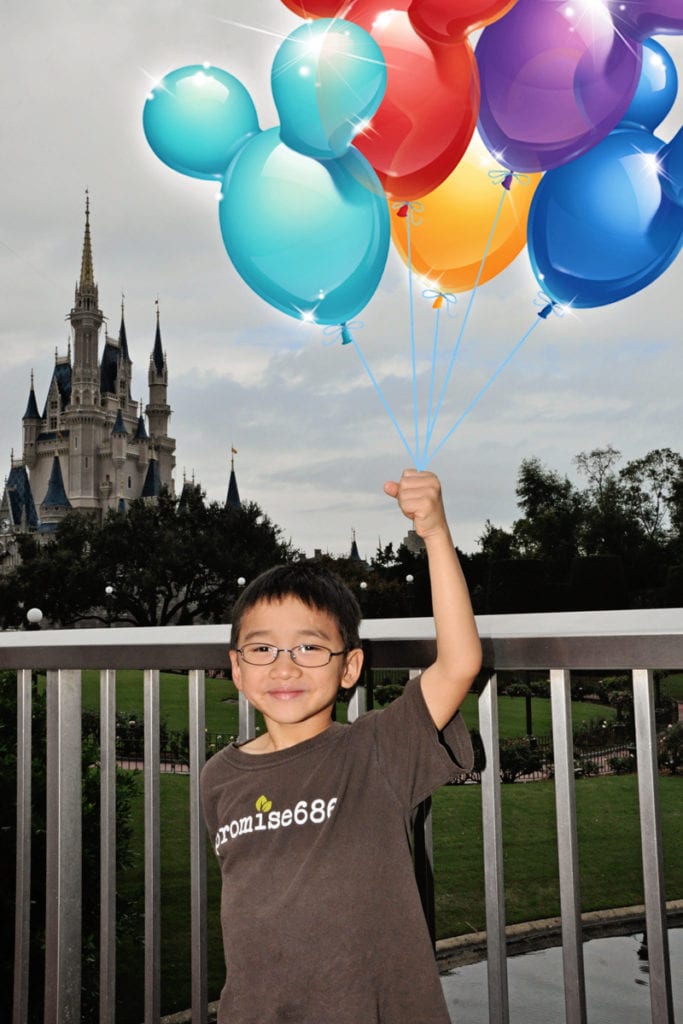Two years after our first adoption, a three-year old waiting boy from China, I began searching the lists for the little girl that would complete our family. In my mind, she would be two or three years old, with a similar need to our son, as we already had trusted specialists in place.
In the spring of 2009, the face of a precious two-year old boy caught my eye. I showed his picture to my husband whose comment was, “He’s cute.” Since I was looking at this list to find my daughter I didn’t think more about him at that time. About a week later, I was tagging all the little boy clothes for a consignment sale, when I asked my husband, “Do I sell these, or put them back in the closet for that little boy we thought was so cute?”

After a short discussion and making sure he was not yet matched, we proceeded to inquire about him further. His need was listed as hypospadias, something neither of us had ever hear of before.
Dictionary.com defines hypospadias as: “a developmental anomaly of the urethra in which a part of the urethral canal is open on the undersurface of the penis or on the perineum.” My initial research indicated that this was an easy “special need”.
It just happened that the first person at work I shared our adoption news with, had a son born with hypospadias and she had a positive story to share about a simple surgery and no further issues. With a happy heart and heading into a situation I felt was well within the range to handle on my own, we started on the paperwork trail.
We received PA on Shuhuai just after his third birthday.
During the wait we received more detailed information on his condition and began to realize that his need was not going to be as “easy” as we first thought. His original diagnosis upon entering the orphanage was hermaphrodite; having both male and female reproductive organs. At age two, the diagnosis was changed to hypospadias, with no clarity on why the diagnosis was changed.
This lack of clarity caused me to fear, and all the what if questions flooded my mind and stole my peace. Maybe I couldn’t handle this on my own! (I know as a believer, I was not meant to handle any of my life on my own, but I am just being real about my personal struggle to trust God in all things.)
I contacted our agency about possible updates and found out we could request an updated exam. We were informed that a blood test and an ultra-sound (to look for internal reproductive organs) would be performed. The translation of the results of the blood work were “male chromosome with abnormalities” and the ultra-sound was not performed, stating “the child was not cooperative.” (This should have been a hint about what was to come with this child 😊.)
During this time, our oldest son required eye surgery and it just so happened that the eye surgeon’s husband was a leading urologist in our area. I arranged to meet with him to have him review Shuhuai’s file. He was very knowledgeable, professional, and to the point. He discussed surgeries with painful difficult recoveries due to Shuhuai’s age, as most hypospadias repairs are made during infancy.
The doctor brought up the likely possibility that he (or she, if future testing should reveal internal reproductive organs as well) would not be able to reproduce naturally. He mentioned counseling would be beneficial as Shuhaui neared puberty and had to navigate a possible major life decision about who he/she wanted to be. One scenario he mentioned was one I had not yet considered: stunted growth, if hormones were lacking to produce the typical changes during puberty.
I left his office with more questions, but I felt I had answers to two things: First, Shuhuai was to be our second child and second, I had found the right doctor to help us with Shuhuai’s care once home.
Fast forward past the 14 months of waiting and a turbulent beginning.
[Remember the orphanage report about him being uncooperative? That was an understatement and is a whole post in itself, about trusting God, saying yes even when afraid, and the long road to attachment and bonding.]
Not knowing what his bathroom habits/abilities would be, I brought pull-ups for Shuhuai to wear throughout our adoption trip. In China we observed that Shuhuai sat down to urinate, as he didn’t seem to have any way to direct his urine stream. It would spray up and out, or down his legs, at times. Once home, he had accidents often.
He didn’t appear to be able to sense when he needed to urinate. We used pull-ups at night and for long outings. I sent him to “try” to use the bathroom at scheduled times during the day, and I kept a change of clothes in the car at all times, just in case. As far as impacting our daily lives, that was all that was required to care for this special need during our first months home.

The first pediatric visit was only a few days after arriving home. He was relatively healthy, apart from a cold, and small for his age, in the 5th percentile for both height and weight. Blood work was ordered, and the results confirmed China’s report of “male”. With that information the pediatrician did not think it would be necessary for an ultrasound. We decided to wait on any further intervention, as it was more urgent that we attached to each other and we wanted his English to be more proficient. so he could understand was going on during medical exams and procedures.
We scheduled a visit with the pediatric urologist, after Shuhuai had been home about six months. The examination revealed two testicles (descended, but not in the right place), a small penis, a small opening under the penis for urine to exit, and a hernia that needed repair. The doctor considered this severe hypospadias with genital malformation and recommended we schedule the first of many surgeries to repair the hernia and put the penis and testicles in their proper place.
Shuhuai was given a shot of testosterone at that appointment with more scheduled leading up to surgery to help “give the doctor more to work with”. It was also mentioned that seeing an endocrinologist at some point could be helpful in determining whether or not Shuhuai would benefit from treatments to increase his overall growth.
The surgery lasted about three hours. His penis and testicles were moved to their correct spots, the hernia was repaired, and our poor little guy had 110 stitches in, on, and around his “tenders”. His recovery was hard.
We gave him Tylenol with codeine every 4 hours around the clock for days, and he still could hardly move from pain. He had a catheter that dripped into a pull-up that had to be changed slowly and gently about every 2 hours. He would wake up screaming in pain during the night when the pull-up got full and heavy, and pressed on his incisions.
During the post-op appointment, it was discovered that some skin had grown over the area where the catheter was placed. While the doctor worked to remove the catheter, Shuhuai screamed and cried and squished my fingers and pushed my “don’t faint in front of the kids” skills to the very limit. Once the catheter was finally out, the doctor wanted to scope the urethra to see if the extra skin would cause a problem with urination. Since Shuhuai was still suffering from the catheter removal trauma, he wanted no part of that! The doctor stated it was important to verify that the urethra was clear, so a scope under anesthesia was scheduled. The scope verified that everything looked good, and we were finished with step one.

The surgery did not change how Shuhuai was able to urinate, he still had to sit, but it seemed he had some control of the direction and therefore fewer spray accidents.
Two years later, Shuhuai was ready to stand up to pee like his brother and father. The consultation with the doctor prepared us for an even more difficult recovery this time. The plan was to take a skin graft from his cheek (mouth) to create a urethra, then attach it to the back side of his penis. The cheek skin would better handle then urine than a regular skin graft, since it is created for the acidity of saliva. This delicate skin would require immobility to heal properly. Strangely, the doctor didn’t think our seven year would be capable of holding still, so a full body (spica) cast would be used for 4 – 6 weeks during recovery to keep him from moving and possibly undoing what had been done.
Testosterone shots were scheduled again leading up to surgery. I prepared for being house-bound for the most part during his recovery and made plans to sleep downstairs with our son in the family room as I was not sure how we would be able to carry his spica-casted self, safely up our narrow stair case. Although Shuhuai was ready and willing to have this second surgery, he was anxious, as was I. The recovery nurse reported that his very first words upon waking in recovery were, “Is my penis surgery over yet?!”
Although the outcome was not a full repair of his hypospadias, the doctor was able to move the opening onto the back of the penis, using skin that was already there! There was no skin graft needed from his cheek, therefore no spica cast! This recovery was so much better than the first one. His was now able to stand to pee and to direct the stream, if he held things a certain way.
This second surgery was nearly five years ago. In that time, Shuhuai has developed the ability to sense his need to urinate better and can stand to pee but usually chooses to sit. He sees an endocrinologist every six months to track his growth and has made it to the 15th percentile in height. His development has been slower than most of his peers, but it has been steady. Signs of puberty are showing, and in a year or two we will most likely revisit the urologist to see what steps to take if Shuhuai wished to complete the repair of his hypospadias.

We have already discussed with him that he will require more surgery to have his own children, and that even then, there is no guarantee. We will most likely seek counseling for him to learn how to address this topic with a potential spouse. Right now, as a pre-teen, he says he will just adopt and find a wife who wants to as well. If that is the outcome he desires, I can’t argue with that!
For information on hypospadias, click here.
– guest post by Julie

























We have 2 dsd kids and wont do any surgery till they are older, that has been our stance from day one. Thankfully we now know we have made the right decision as one of our kids who had almost all surgeries in China minus one more needed, now is at 6 asking to be a girl. Our other child is choosing to stay boy, for now. While its great to correct, I caution parents out there to make sure this is the gender the child wants to be, before surgery takes place. Once surgery is done, there is more scar tissue, etc to deal with in subsequent surgery. Our first child we probably could easily correct as he has been pretty consistent with himself being a he. Our second child was being raised a girl, then they switched to a boy in China and did surgeries, once home we continued to raise him as a boy. Foster Dad in China was told by us, no more surgery till we know for sure. A year after having “him” and him acting more boy, he is asking for long hair and girl clothes and nail polish. Had we corrected him further, he would have undergone a painful surgery for nothing. All traces of female were eliminated from our child in China. We want others parents of DSD kids to know, surgery can happen if you feel its right, just be prepared, this type of special need could mean the child goes the opposite of what was assigned later, which is why we are choosing to wait. We also have heard from other adult DSD people that they wish their parents would have let them decide. In the end, its a personal choice to do surgery or wait, either decision has the risks and benefits. But thank you for showing the surgery side as its valuable info to know if families choose surgery now vs later. Love your post! 😊
Thank you for adding your experience and insight. The more information we can provide to others walking in our shoes, or considering it, the better.
Thank you for sharing your story. We also have been through some of this with our son. I felt very alone in this, as it isn’t something we talked about with many other people. He is doing great now. But, I can relate to the painful recovery. We have no regrets and we are thankful we were able to do the repair while he was still young. Chromosome testing, shots, these were all things we had no idea we would face. But thankfully we had God’s help and older professionals to guide us through it all. Thank you again for sharing your journey.
Julie,
I felt very prepared for this special need doing extensive research into all aspects, from the physical, emotional, psychological and yes even spiritual. I even contacted people from The Intersexed society of America to gain more insight into this need. DSD kids need us to be educated as we walk along side them through whatever challenges they may face. I hope to see more familes weigh in on your post. It is important for families coming after us to know what to expect, for them to be able to make informed decisions on what is right for their child.
While some families choose correction, others will choose waiting. Really, only time will truly tell if our child(ren) our happy with the choices we have made.
How we chose our direction was decided when the people with DSD’s we encountered overwhelmongly agreed, waiting would have been better for them as they were unhappy with their childhood corrections. Some of them even felt mutilated. 😐
Something I never thought of the correcting process till they said that!!!! 🤤 Majority wish they would have had full say in what was to happen with their own bodies and being able to be the one choosing their gender.
Honestly, in the end, each DSD person is going to feel different then someone else. We as parents try to make the best decision for our kids and I Pray each family seeks out whatever information they need to decide whats right for them. The differences are kids were born with make for a complicated decision making process. Again, Thanks for your post!!!!! It truly will help other families, I am sure.